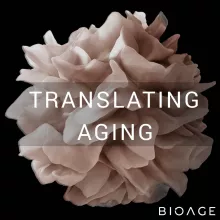Episode shownotes
30 Years of Aging Biology: A Pioneer’s Perspective (Cynthia Kenyon - VP Aging Biology, Calico Labs)
Dr. Cynthia Kenyon reflects on the evolution of the longevity field over the 30 years since the publication of her groundbreaking paper, “A C. elegans mutant that lives twice as long as wild type,” a genetic analysis of one of the first single-gene mutations to extend lifespan in the worm. She recounts the initial excitement and skepticism around the idea of a pathway that regulates aging, and subsequent validation of this and related ideas in a wide range of model organisms. She also discusses her longstanding belief in the translational potential to improve human healthspan, and her experience as a co-founder of one of the first longevity biotech startups, Elixir Pharmaceuticals, in 1999. Based on her unique historical perspective—and with undiminished enthusiasm—she looks ahead to the unsolved mysteries that will propel the next generation of breakthroughs.
Key ideas:
- Origins of looking at aging regulation in C. elegans in the 1990s
- age-1 and daf-2 as the first aging genes
- Early resistance to the idea of studying aging at the molecular level
- Cloning of genes to reveal conserved longevity pathways (IIS/mTOR)
- Extending lifespan in invertebrates, and then mice
- The connection between stress resistance to evolutionary theory
- Dr. Kenyon's initial belief in the translatability of aging science
- Co-founding Elixir Pharmaceuticals in 1999 to target aging
- Current optimism about interventions against aging
- Need for public funding of large trials of natural compounds
- Excitement about newest mechanisms like reprogramming
- The enduring promise of targeting core nutrient-sensing networks
- Developmental origins of aging rates and resilience
Links:
Email questions, comments, and feedback to podcast@bioagelabs.com
Translating Aging on Twitter: @bioagepodcast
BioAge Labs Website bioagelabs.com
BioAge Labs Twitter @bioagelabs
BioAge Labs LinkedIn
